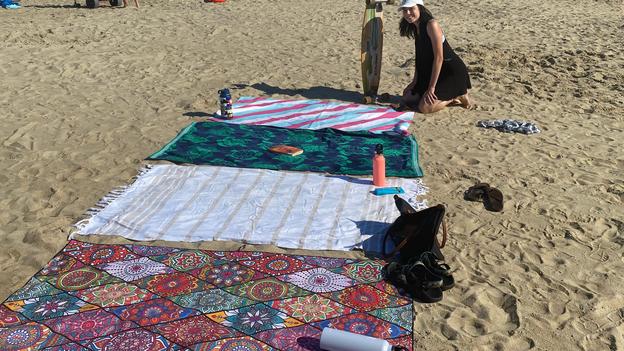Ring-spinning is the process in which cotton fibers are converted into yarn. Before that, cotton may be “combed” which is an extra step that weeds out dirt and weaker, shorter fibers. There’s also a process known as “carding” that further removes shorter fibers and aligns the rest so that they’re more parallel and smoother. From there, the ring-spun yarn will be lustrous and stronger, which will, in turn, result in a more durable and longer-lasting towel, says Preeti Arya, assistant professor of textile development and marketing at the Fashion Institute of Technology. Each of these steps will impact the overall price of a towel, and the more processing the fibers go through, the more expensive the end result will be.

Towels made of long-staple cotton (not the metal staples you’ll find at the office, but fibers of fabric) have long cotton fibers. The longer and finer these staples are, the plusher a towel will feel.
Katie Elks, director of design and product development at Brooklinen, recommends towels with long-staple cotton and single-ply yarns, which consist of a single strand of twisted yarn. Both create a strong, smooth towel while avoiding tears in the weave. This also makes it more durable wash after wash. “Cotton is best in terms of fabric,” says Elks, “It absorbs well, dries quickly, and is super soft.”
Shop cotton towels on Amazon, Bed Bath & Beyond, Target, Wayfair.